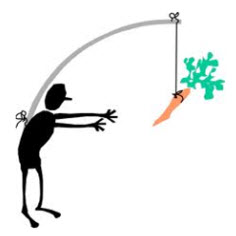
To be clear, I have no financial interest in the success of author, Daniel Pink, but I do want to discuss a way to look at motivation in the work place and at school.
Several years ago, I read a fantastic book on motivation-Drive. Personally, I think it’s difficult to motivate adult workers. We can set up work environments that foster motivation; we can also unintentionally de-motivate workforces. Pink feels workers that experience Autonomy – the desire to direct our own lives; Mastery – the urge to get better at something that matters; and
Purpose – the yearning to do what we do in service of something greater, have a greater sense of accomplishment.
We have previously discussed Autonomy, Mastery and Purpose at several leadership meetings at the Roseville Police Department and I hope our staff practice it often. Two ways we try to practice this is when patrol officers are conducting traffic enforcement activities along with overtime details related to crimes.
All police officers entered this profession for various reasons – Purpose. Mine, I didn’t like math and science classes in high school and sociology classes piqued my interest; this migrated to a criminal justice degree. If an officer’s purpose is to keep people safe from drunk drivers, then he or she should have the opportunity to take drunk drivers off the road during his or her regular work hours and overtime details that focus on drunk driving. If an officer’s purpose is to keep neighborhoods safe from speeding drivers, then he or she should have the opportunity and tools to enforce the speed limit where pedestrians frequent. Same goes for overtime details when they are available.
Another way we tap into motivation is allowing officers to follow through with some investigations, if circumstances allow – Mastery. Many crimes are reported to the patrol division who write a report and our detectives generally follow up on the serious incidents. In some cases, the patrol officer involved in the original report will help, in an overtime capacity, with subsequent search warrant applications, interviews and other investigative work on the case. A great example of this was a recent case involving low-level marijuana dealers who live in Roseville. The patrol officer who made the traffic stop which uncovered the operation, along with other officers with previous contacts with the residents of the home, wrote a search warrant application, which was served on the home. The officers located marijuana, two handguns hidden behind an appliance and a suspicious, high-capacity rifle. The low-level marijuana dealing is not a serious enough case to involve our multi-jurisdictional narcotics unit (they are too busy with major dealers) and may have been overlooked, if not for this special detail.
A short YouTube video summarizing the book, Drive, can be viewed if you don’t have the time read the book.
Take Care,
Chief Rick Mathwig
This post was originally published as part of the December 1, 2017 edition of Chief Mathwig’s newsletter, One Chief’s Perspective.